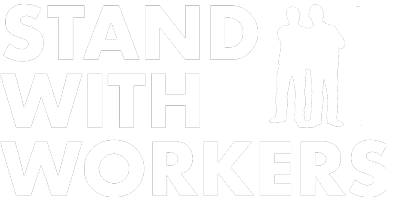There are stark differences in the key arguments for and against requiring state employees to pay a union to keep their job.
Mark Janus is a child care worker for the state of Illinois, but he doesn’t want to be forced to pay fees to the American Federation of State County and Municipal Employees (AFSCME) Council 31, which he said he isn’t aligned with politically.
In a previous case, the U.S. Supreme Court ruled Illinois home healthcare workers shouldn’t be forced to pay fees to a union. In Janus v. AFSCME, Janus is asking the court to rule the same way.
“We need to rethink some of this and where these political areas are going because they provide money to elect candidates and then these candidates are negotiating contracts,” Janus told Illinois News Network in September when the U.S. Supreme Court decided to take up his case.
Janus said his First Amendment rights are violated by being forced to pay dues to a union he doesn’t agree with in order to keep his job and serve the people of Illinois.
The National Right To Work Foundation filed the first brief to the U.S. Supreme Court Wednesday on behalf of Janus.
AFSCME Council 31 didn’t return messages seeking comment. When the high court agreed to take the case, AFSCME said Janus’ lawsuit was an attack on union finances and collective bargaining.
University of Illinois School of Labor and Employment Relations Professor Michael LeRoy said the union is expected to argue fair share fees don’t go to politics.
“To AFSCME’s argument, they’re bargaining over wages, hours and terms of conditions of employment,” LeRoy said. “They’re not bargaining over broader issues. With respect to the dues that members are paying in fair share … those dues are going to support the effort to maintain wages and hours.”
NRTW’s Patrick Semmens said everything the union does is political.
“Whether it’s a union trying to protect an incompetent employee or advocating against merit pay and for tenure or something like that, that affects the services that taxpayers and the citizens get every day,” he said.
LeRoy said the unions would take a financial hit if they lose the case.
“The union will lose some funding and perhaps a considerable amount of funding,” LeRoy said. “It’s anybody’s guess. But what it means is individuals would no longer be required as a condition of employment to remit fair share dues.”
Semmens said if his client wins, unions will just have to work harder to persuade workers that joining the union is worth the cost.
“If they can’t convince workers that payment of those dues is good use of their money, then it probably would affect them, but we would then argue that they probably should not be getting that money to begin with,” he said.
The Liberty Justice Center is representing Janus along with the National Right to Work Legal Defense Foundation.
LJC Director of Litigation Jacob Huebert said in a statement that government workers shouldn’t have to pay political organizations like public employee unions just to keep their jobs.
“The First Amendment gives everyone the right to choose which political groups they will and won’t support with their money,” Huebert said.
Arguments before the U.S. Supreme Court are expected to take place in February, with a ruling by summer.

